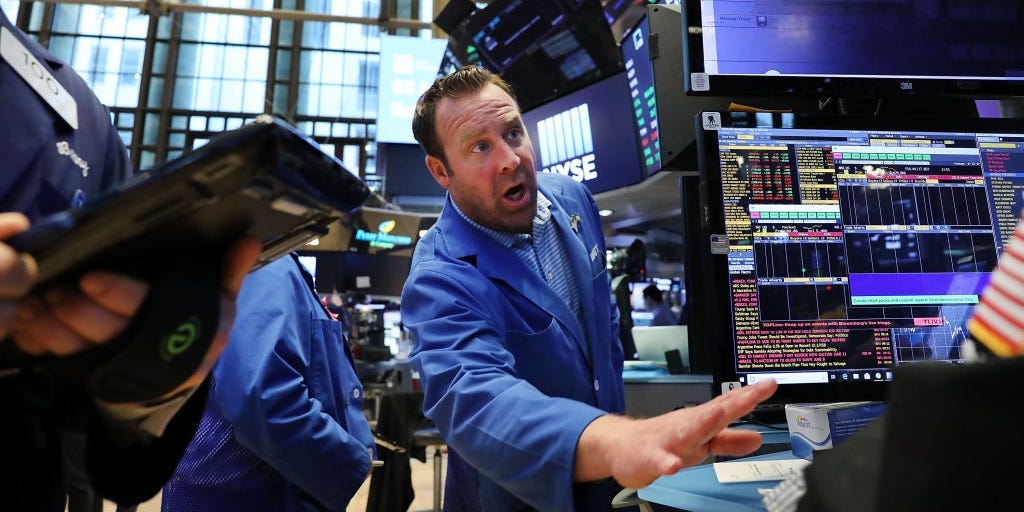
- US stocks trade mixed Tuesday as investors digested the continued strength of corporate earnings.
- Peloton stock fell as much as 13% after the company announced CEO John Foley will step down.
- Ahead, investors are anticipating the January CPI data Thursday. Economists are expecting a 7.3% surge in prices.
- Sign up here for our daily newsletter, 10 Things Before the Opening Bell.
US stocks were mixed Tuesday as investors digested another round of corporate earnings results and the prospects of economic growth amid a more hawkish Federal Reserved determined to cool inflation.
The S&P 500 slipped further after closing lower in a volatile session on Monday. The Dow Jones Industrial Average was up slightly while the Nasdaq Composite edged lower.
Here's where US indexes stood shortly after the 9:30 a.m. ET open on Tuesday:
- S&P 500: 4,480.85, 0.07%
- Dow Jones Industrial Average: 35,185.46, up 0.27% (94.33 points)
- Nasdaq Composite: 14,004.83, down 0.06%
Peloton stock fell as much as 13% after the company announced CEO John Foley will step down and the embattled exercise equipment maker plans to cut 2,800 jobs. Foley is set to become executive chairman while former Spotify and Netflix CFO, Barry McCarthy, will replace Foley and join Peloton's board.
Looking ahead, investors are anticipating the January consumer price index data due Thursday. Economists polled by Bloomberg are expecting a 7.3% surge in prices, continuing the trend of prices rising at the fastest pace in about 40 years.
Such a reading could further entice the Federal Reserve to a more aggressive path of interest rate increases this year. The consensus view in the market is for the central bank to raise rates five times this year at 25 basis points each time.
Despite rate fears, a steady flow of strong corporate earnings is boosting markets.
276 S&P 500 companies (75% of index earnings) have announced results thus far, according to Bank of America. After a strong beat from Amazon, the fourth-quarter consensus EPS is now tracking 6% above where it stood on January 1, which is above the historical average beat of 2.5%.
"Despite a solid beat this quarter, guidance weakened significantly," bank strategists Savita Subramanian, Ohsung Kwon, and Jill Carey Hall, said in a note on Tuesday. "Guidance is also sparser than usual."
Still, UBS predicts the S&P 500 will rally to 4,850 by the end of the year, reflecting an 8% increase from Monday's closing level of 4,483.87.
"Stronger earnings is the reason we recommend buying the dip," UBS analysts, including head of US equity strategy Keith Parker, said.
In cryptocurrencies, bitcoin slipped 0.52% to $43,648.30 following a weekend rally that spilled over on Monday.
"With it being more than 75 days since bitcoin fell from its all-time high of $68,990 some believe the crypto winter has already hit," Andras Ivan, analyst from broker comparison site BrokerChooser said in a note. But "bitcoin would need to bottom out at around $11,000 to reflect that of the previous winter percentage loss which seems unlikely to happen."
The 10-year Treasury yield rose to 1.95% — a level last seen in December 2019 — from Monday's 1.915% as investors brace themselves for the Fed's eventual rate hike. Bond yields move inversely to prices.
Oil prices cooled slightly following a major run-up. West Texas Intermediate crude oil fell as much as 1.71% to $89.76 per barrel. Brent crude, oil's international benchmark, slipped as much as 1.84% to $90.98 per barrel.
Gold rose as much as 0.88% to $1,823.88 per ounce.
